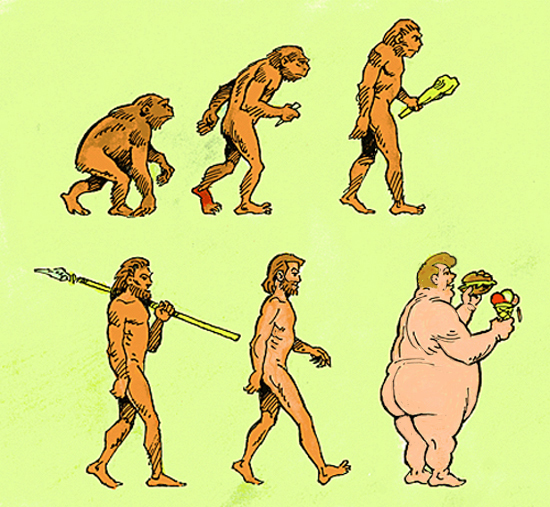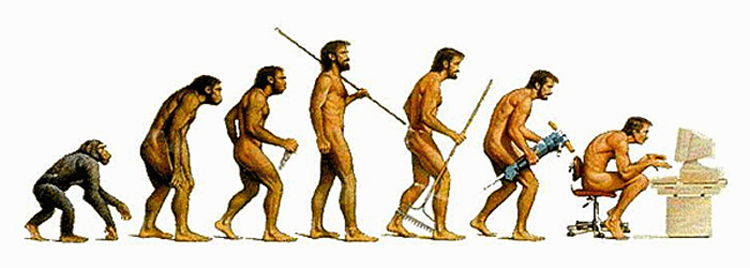volv-, volu-, -volve, volut-, -volute, -volution
(Latin: bend, curve, turn, turn around, twist, roll)
devolution
1. A passing down or descent through successive stages of time or a process.
2. Transference, as of rights or qualities, to a successor.
3. Delegation of authority or duties to a subordinate or a substitute.
4. A transfer of powers from a central government to local units.
2. Transference, as of rights or qualities, to a successor.
3. Delegation of authority or duties to a subordinate or a substitute.
4. A transfer of powers from a central government to local units.
devolutionist
Someone who favors transferring power from a central government to smaller political units.
devolve (verb), devolves; devolved; devolving
1. To transfer power, responsibility, or rights to someone or something; for example, from a central government to a regional government, or to be transferred in this way.
2. To become the duty or responsibility of another person.
3. To deteriorate slowly over time; to degenerate, or to deteriorate, gradually.
4. To be given to someone under the terms of a will or other legal instruction.
5. Etymology: from Latin devolvere, "to roll down"; from de-, "down" or "reverse" + volvere, "to roll".
2. To become the duty or responsibility of another person.
3. To deteriorate slowly over time; to degenerate, or to deteriorate, gradually.
4. To be given to someone under the terms of a will or other legal instruction.
5. Etymology: from Latin devolvere, "to roll down"; from de-, "down" or "reverse" + volvere, "to roll".
devolvement
1. The delegation of authority; especially, from a central to a regional government.
2. The act or process of devolving (passing responsibilities or rights to another); devolution.
2. The act or process of devolving (passing responsibilities or rights to another); devolution.
evolute
A curve from which another curve, called the involute or evolvent, is described by the end of a thread gradually wound upon the former, or unwound from it.
1. The processes of biological and organic changes in organisms by which descendants grow and thrive differently from their ancestors: Evolutions are supposed to have made more advanced or mature developments of humans.
2. The gradual process of something into a more complex or better form: Evolution is the continuing series of actions from one state or condition to another or from one shape to another.
3. The theoretical amount by which all species develop from earlier forms of life: According to this theory of evolution, it is a natural variation in the genetic material of a population that favors reproduction by some individuals more than others; so that, over the generations all members of certain inhabitants have come to possess the favorable or unfavorable modern traits as shown in the illustration below.


2. The gradual process of something into a more complex or better form: Evolution is the continuing series of actions from one state or condition to another or from one shape to another.
3. The theoretical amount by which all species develop from earlier forms of life: According to this theory of evolution, it is a natural variation in the genetic material of a population that favors reproduction by some individuals more than others; so that, over the generations all members of certain inhabitants have come to possess the favorable or unfavorable modern traits as shown in the illustration below.


evolutional
1. Relating to evolution.
2. Referring to evolution.
3. Coming about as a result of the principles of evolution.
2. Referring to evolution.
3. Coming about as a result of the principles of evolution.
evolutionary
1. Relating to, resulting from, or produced by evolution.
2. Developing in small increments that accumulate to bring about significant changes.
2. Developing in small increments that accumulate to bring about significant changes.
evolutionary economics
A school of economic thought that views the economy as an evolving system (on the model of the biosphere) and emphasizes dynamics, changing structures, and disequilibrium processes; such as, would occur in biological evolution.
evolutionism
1. The theory of biological evolution.
2. Belief in the theory of biological evolution.
3. Advocacy of or belief in biological evolution.
2. Belief in the theory of biological evolution.
3. Advocacy of or belief in biological evolution.
evolutionist
1. Someone who believes in or supports a theory of evolution; especially, in biology.
2. A person who supports a policy of gradual growth or development rather than sudden change or expansion.
2. A person who supports a policy of gradual growth or development rather than sudden change or expansion.
evolvable (adjective), more evolvable, most evolvable
1. Able for animals or flora to change over time and thrive into various forms: The evocable plants in Jim's greenhouse produced many different and beautiful flowers.
2. Capable of disclosing or unfolding: The methods used in teaching in schools have proved to be evolvable due to the development and use of computers.
2. Capable of disclosing or unfolding: The methods used in teaching in schools have proved to be evolvable due to the development and use of computers.
evolve
evolvement
evolver


